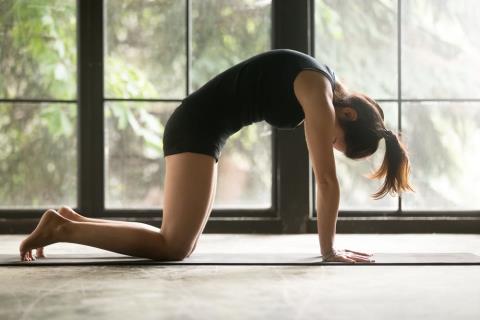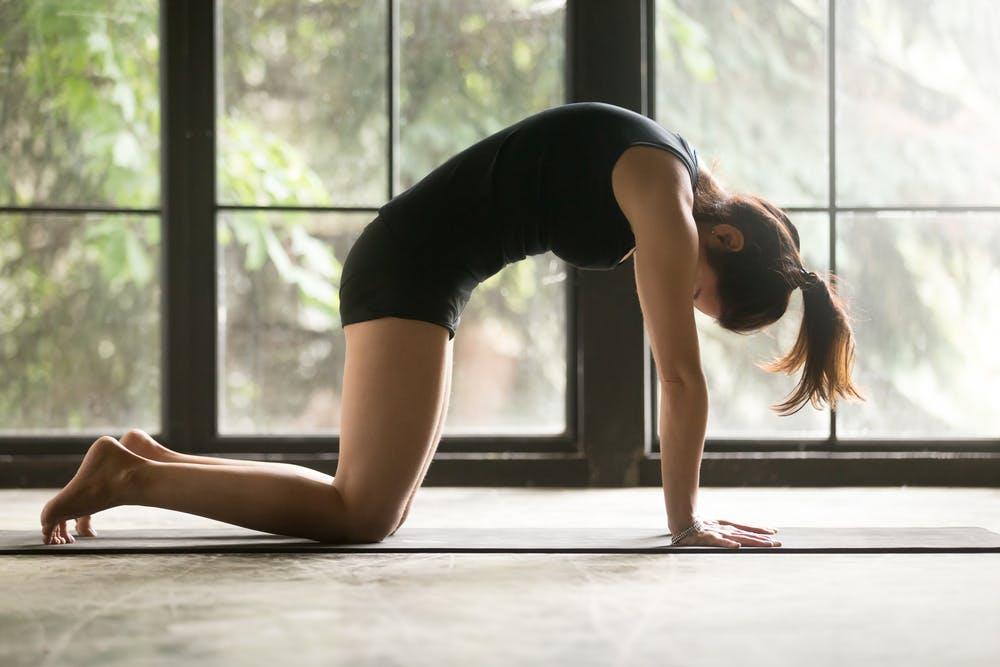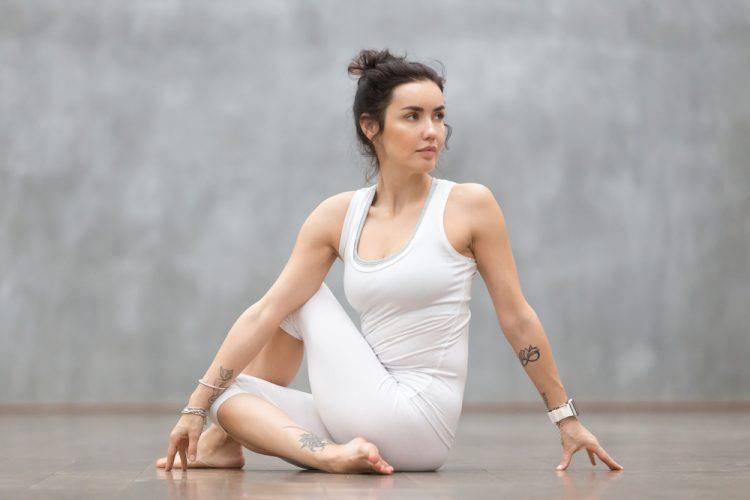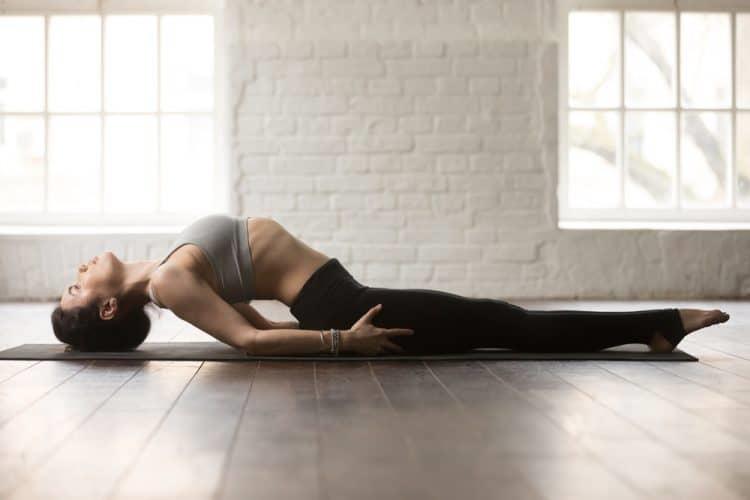8 yoga exercises for people with cervical spondylosis

Yoga exercises aim to improve flexibility and body flexibility. Therefore, yoga has great benefits for degenerative spondylolisthesis. In the following article, Doctor Doan Minh Thai will introduce you to 8 yoga exercises for people with cervical spondylosis, let's find out.
content
- What is cervical spondylosis?
- Symptoms of cervical spondylosis
- 8 yoga exercises for people with cervical spondylosis
- How to prevent cervical spondylosis?
What is cervical spondylosis?
Cervical spondylosis is damage to the vertebral body, intervertebral disc and ligaments in the cervical spine. Over time, these injuries cause vertebrae degeneration, causing neck pain and difficulties for patients.
Symptoms of cervical spondylosis
The most common symptoms of patients are aches, pains and difficulty in moving the neck. In addition, the patient may also experience pain and discomfort even at rest. The pain extends from the ear, neck to the head, forehead and can spread down the shoulder blade, arm.
See more: What do you need about chronic degenerative cervical spine disease?
8 yoga exercises for people with cervical spondylosis
Standing posture bent forward
This pose helps you relax your neck and shoulder joints. To perform, you stand with your feet touching your heels into a V shape. Then bend forward, hands touching the floor, neck relaxed and bent down. You will feel the cervical vertebrae relax and reduce compression. You can shake your head to the left and right gently so that the joints are flexible, reducing stress. Hold this position for about 30 seconds and then return to the original upright position. You can repeat many times or combine with many other yoga movements.
Extended triangle pose
Extended triangle is a great impact pose for the back spine, shoulders, and neck joints. It is done by:
Step 1: Step feet wider than hips.
Step 2: Two arms outstretched to form a straight line.
Step 3: Lower your right hand to touch your right foot so that your arms are still extended and perpendicular to the floor. It is important that you move your neck gently so that your eyes follow your hand. Hold this triangle pose for 30 seconds and then do the same with the other side.
Cow Pose
Cat crawling is a very good yoga exercise for people with cervical spondylosis because flexing and expanding the flexible neck joint. To do this we do the following:
Step 1: Get ready with your hands and knees on the floor.
Step 2: Look up at the ceiling while leaning down, lowering your belly and back.
Step 3: Bend your head down and push your arched back up. Bend and raise your head gently and fully to stretch your neck joints. Lift or bow your head for 10 seconds each time.

Cow Pose
Baby pose – Yoga exercises for people with cervical spondylosis
This baby yoga pose is very commonly used and doesn't take much effort. The height increase benefit of this exercise is because it helps to relax the vertebrae. The neck, back, hip, and leg positions are stretched and help relieve back pain, neck and spine pain. Thanks to that, it helps prevent the process of cervical spondylosis effectively. It's very simple to do as follows:
Step 1: Kneel on the floor so that your heels are under your buttocks, and your knees are slightly shoulder-width apart.
Step 2: Slowly lower yourself down, your head touching the floor, and at the same time stretch your arms forward. Slowly feel your vertebrae straighten and relax
Hold the position for 30 seconds and raise your body back to the starting position.
Cobra pose
This yoga exercise for people with cervical spondylosis is a strengthening exercise for the spine. Cobras help stretch your arms, legs, and spine, back and neck. Easy moves that can be done at home are as follows:
Step 1: Lie face down on the floor, hands placed on the floor, under the shoulders. The legs are naturally stretched out to the back.
Step 2: Using your hands as pillars, press close to the sides, face up. Lift your upper body to stretch your body to its fullest extent. Hold this position for 30 seconds.
Half body sitting posture
Half-body sitting is a very beneficial position for flexibility and flexibility for the joints. This exercise is performed as follows:
Step 1: Sit cross-legged on the floor, hands on hips.
Step 2: Bend the left leg so that the left foot is outside, next to the right hip. At this point, if the knee flexion makes you feel pain, you can straighten your right leg. Simultaneously twist your body, turning your head and face to the left as much as you can. The right elbow rests on the left knee as a hinge, the left hand is placed behind the back, the eyes follow the hand.
Step 3: Feel the decrease in tension in the back and neck vertebrae. Hold the twist for 30 seconds then switch sides.
Note: To avoid back pain, you need to make sure your back is straight, not hunched . This exercise will not be suitable for people with back injuries or pregnant.

Half-body sitting exercise
Bridge pose
The bridge is one of the simple and effective yoga exercises for people with cervical spondylosis. It stretches the spine and lower hips and strengthens the neck joints. The bridge exercise is performed as follows:
Step 1: Lie on your back and relax on the floor with your hands down. Bring your legs together so that your feet are in contact with the floor.
Step 2: Squeeze the abdomen, use the force from the hands and abs, the hip muscles lift the body to the highest position forming a straight line from the nape of the neck to the knee. Balance for 30 seconds and return to step 1. Repeat 3-4 times.
Fish Pose
This exercise stretches the cervical vertebrae backwards with the following implementation:
Step 1: Lie flat on the floor, arms along the body, legs straight.
Step 2: Lift the neck and upper back gently, both forearms support the neck. Try to lift your body all the way up, hold for 30 seconds.
Step 3: Slowly lower yourself down to the starting position.
This exercise works very well for the cervical vertebrae, but should not be performed if you are suffering from insomnia or migraine. You should also avoid this pose if you have a back or neck injury and have high blood pressure.
See more: Symptoms of low blood pressure need special attention

Fish pose helps to stretch the cervical vertebrae
How to prevent cervical spondylosis?
However, the choice of exercise depends on the extent and progression of the disease, so if you are diagnosed with cervical spondylosis, you should go to an orthopedic, neurological, and physiotherapist specialist for diagnosis. most appropriate diagnosis, intervention, and exercise guidance.
To prevent cervical spondylosis, you should improve your working posture. Avoid sitting postures with your head bowed for too long or placing heavy objects on your head. When neck fatigue is absolute, sudden joint-cracking movements because they will increase the risk of cervical spondylosis. Instead, you should massage and do gentle yoga as directed. If there are signs of stiffness along with pain, paralysis, it is necessary to go to a neurologist, traumatologist to diagnose the disease correctly and receive appropriate exercise advice from the specialists.
Above are 8 effective yoga exercises for people with cervical spondylosis. Hope the article will help you to safely improve your neck pain.